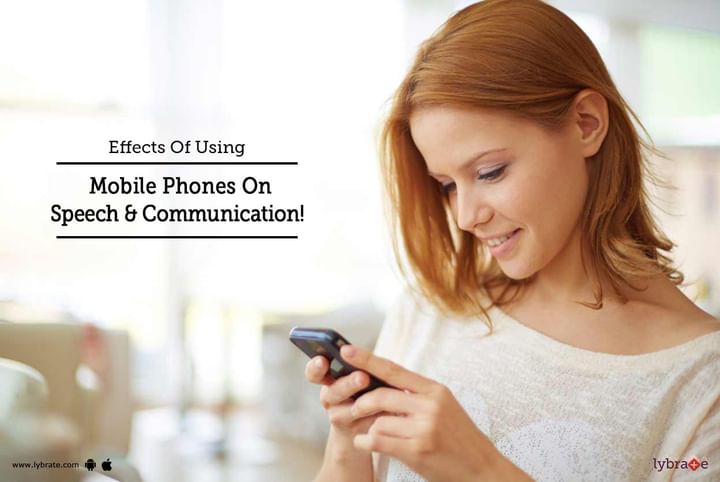Effects Of Using Mobile Phones On Speech & Communication!
Cell phones have become a compulsory device for our times, as they give us access to voice and data services in almost every part of the world. Hazardous effects of cell phones are significant because they are kept on our bodies, in our pockets, or held in our hands. In a recent publication, it was seen that 56% of children between the ages of 10 - 13 have a smartphone. Also, it is seen that 25% of children between the ages of 2 and 5 have a smartphone. School-grade students today beg for smartphones more than even new dresses or shoes.
Effect of Using Mobile Phones on Speech and Communication
In today's era, children using handheld devices are more likely to have delays in expressive speech. These children start talking much later than their peers. Since the cell phone does not respond back to their communication, children cannot develop a communication channel with it. Soon, they get accustomed to using signs and symbols for things rather than asking for the same. They just get used to the mechanical model of handling cell phones by following few simple steps. In human beings, speech is mastered gradually and progressively. If the child skips on the fundamentals of speech, which requires constant repetition of letters, consonants, syllables, and words, his speech tends to get delayed.
As per famous research conducted in Toronto, it was found that with every 30 minutes of screen time, the risk of delayed speech increased by 49%. Usually, infants should be able to communicate in sentences between three and four words, by the age of 2-3 years. However, those who spent the most time on handheld devices were found to struggle with communication skills. As per another popular study conducted in the UK, electronic gadgets may be blamed for 70% rise in speech problems in 6 years. Another famous study conducted in University College London found that screen time also had an impact on sleep of infants, which affected their brains.
As per the opinion of education leaders and speech specialists, many children are deprived of conversation with their family since they spend a lot of time on electronic devices. The noise and activity on a screen can distract a small child and cause a disconnect between them and their parents. Screen time is slowly replacing parent-child interactions which are critical for healthy development.
How to address this issue?
The best way to teach language to children is by interacting with them, talking with them, using different vocabulary, playing with them, being creative, and pointing things out to them. However, if you feel that owing to negligence your child already has issues with his speech and communication, then visiting a professional speech therapist and counselor can make a huge difference.



+1.svg)
